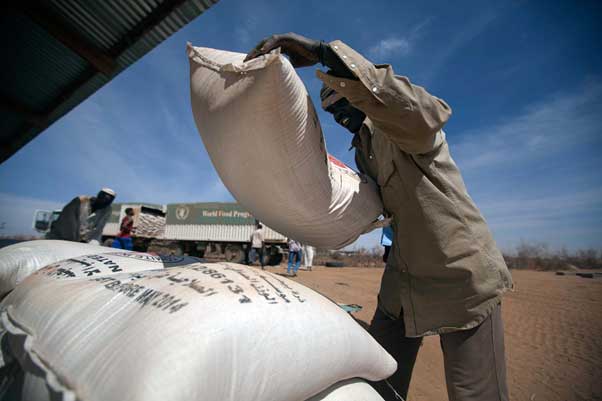From Crisis to Resilience: We Need a New Recipe to Combat Hunger

BRUSSELS, Belgium, Aug 07 (IPS) - The fragile state of global food systems has reached a crossroads. Recent headlines underscore the profound challenges we now confront.
The United Nations released sobering statistics that 122 million more people are going hungry than in 2019, erasing years of progress. One week later, Russia announced it was ending the crucial deal that allowed Ukraine’s vast grain production to be shipped to the outside world.
This deal was an important factor in alleviating last year’s record high food prices. Russia then proceeded to bomb grain facilities in Ukraine, causing wheat and corn prices to surge. Simultaneously, soaring heat, blazing wildfires, and devastating floods are jeopardising harvests around the world. Meanwhile the food industry has recorded billions in profits.
These events tell us we are facing both acute shocks to food security, and chronic underlying food poverty. Even while the industrial globalised food system generates bountiful profits. These are all symptoms of the same disease – and highlight the urgent need for major changes in our food systems.
Two statistics from the UN’s hunger report are perhaps most concerning.
First, the projection that almost 600 million people could be chronically undernourished in 2030. This shows that the Sustainable Development Goals – in which governments committed to end hunger by that date – lie in tatters, unless urgent action is taken.
Second, the finding that a decent nutritious diet is now out of reach for nearly half the planet. The cost of a healthy diet has shot up just as people are seeing disposable incomes tumble. What an indictment of our failing food system.

This is not because the world does not produce enough food. Global agriculture has never produced so many calories – its growth outpacing population growth. The streamlined chains of the industrial food system are well tuned to deliver cheap and uniform biscuits, crisps and fizzy drinks across the planet, increasingly to even the most remote areas.
Rather, the industrial food system is simply not delivering. It prioritises market demand and profit, over meeting human needs. It is more profitable to produce mass commodities for animal feed, biofuels and processed foods, ultimately serving rich consumers with an ability to pay, rather than the needs of poor communities and hungry populations. The industrial food system is not built to ensure access to food and healthy diets for all.
Hence only about 55% of people around the globe live in countries with enough fresh fruits and vegetables available to meet the World Health Organization’s minimum recommended daily consumption target.
Our food system has had some unlucky shocks these last three years – from Covid-19, climate impacts and conflict. But it was also disastrously vulnerable. The industrial food system is built upon layers of concentration which are liable to disruption.
Half the calories consumed around the world come from just three staple crops (wheat, maize and rice), grown from a narrow range of seed varieties, exported from a small number of countries, shipped around the world by a handful of powerful trading firms. This is profitable, but it is not robust.
Record high debts in many Global South countries are also preventing them from investing to combat hunger, trapping them in a vicious cycle. Global South countries have been forced to specialise in growing and exporting cash crops like cocoa, coffee and cotton in order to pay down debts – at the expense of growing food for their own populations.
They are thus required to import food – food which is now much more expensive – and unable to invest in resilient local food production. Africa is today a net importer of food – with net food imports of $35 billion in 2015, expected to triple by 2025.
Governments will no doubt agree on the need to raise ambitions. But when we are so far off course, the time is up for small adjustments. We need a completely new recipe to address hunger and build resilience. Based on breaking dependence on the global market to provide adequate nutrition and feed the hungry, and rebuilding countries’ capacity to produce the food they require.
Social protection schemes must guarantee food access for the world’s poorest – with proven policies like the successful ‘Fome Zero’ programme deployed by Brazil in the 2000s that took the country off the hunger map. Urgent debt relief for heavily indebted low-income countries is also crucial to allow them to invest in anti-hunger schemes and domestic food production.
In a world of climate crisis in which more shocks are to come, resilience throughout the system must be the goal. More diverse agroecological food production, shorter food chains, and countries producing more nutritious food for their own people can unlock the food security that too many are denied. It’s time we admit the industrial food system is starving people.
Let these alarming headlines be a turning point to a different road, a route towards resilience.
Olivier De Schutter is co-chair of the International Panel of Experts on Sustainable Food Systems (IPES-Food) and UN special rapporteur on extreme poverty and human rights
IPS UN Bureau
Follow @IPSNewsUNBureau
Follow IPS News UN Bureau on Instagram
© Inter Press Service (2023) — All Rights Reserved. Original source: Inter Press Service

